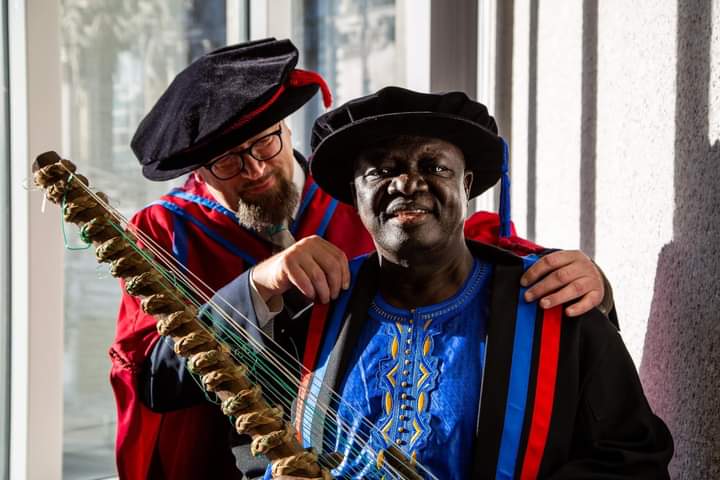 In Natariko today, Kora Historian about the foundation touchstone of Islamic belief.
In Natariko today, Kora Historian about the foundation touchstone of Islamic belief.
The programme, aired in Mandinka language, looks into the history of why some people disbelieve, despite being armed with ample knowledge. It also details how knowledge led some to believe in God whilst some totally disbelieve. Another interesting aspect of the audio is the role being played by philosophy in creating answers for people devoid of religious spiritual connections. The Kora historian explains it all.
The epicenter of the audio is an encounter between Sage Master Muhammed Ambali and the Atheist who became an apostate creating a cult and ended up misleading his followers.
Kora players are in several categories: scholars of ancestral tradition history and entertainers. The griot scholars perform for patrons but not on frivolous praise singing alone as they narrate the past epic events.
Some of their narrations take the form of explaining the ayahs (verses) of the Quran, the Hadith and also famous incidences between knowledgeable scholars. Among them the travels of Shiek Umar Futi, the battles of Almamy Samouri, the battles of Tiramakaman, the epic Sunjatta story, the battles of Alpha Yaya Jallow, the epic Kabou Kansala history, to the journeys of Foday Kabba, Foday Sillah (Ebrima Touray of Gunjure) commonly referred to as Kombo Sillah, Maa Bah Jahou, Musa Molloh etc
Kora historains cannot come any better than, the Diabatehs of Cassamance. Tune in and listen to the 15 questions the atheist put to Muhammed Ambali, the failure to answer them means the killing of the Sage/Sufi Mystic.
Among the questions was, ‘before God, what was there’? Theologians have wrestled with this questions leading to some people losing faith totally due to their lack of understanding the complexities of the human thought processes. Philosophy’s supreme dynamic expounds certain strong belief. However, Muhammed Ambali’s encounter with the Atheist became a kora legend. You will enjoy the kora repetitive repertoire and the in-dept quotations from the Quran and the narration of the story.
The limitation is that, if you can’t understand Mandingka, you will not enjoy the highly philosophical encounter. The program repeats after the adverts.
By Suntou Touray ( Natariko host)
 In Natariko today, Kora Historian about the foundation touchstone of Islamic belief.
In Natariko today, Kora Historian about the foundation touchstone of Islamic belief.


Hi there to all, how is everything, I think every one is getting more from this website, and your views…
That is so true. Omg, you nailed it. That is exactly typical Gambian attitude unfortunately, it is very depressing.
Ba Buwa is a great man! I first heard his name when I was in Kiang Karantaba Primary School between…
[…] cuatro cuestiones que el comité no pudo resolver son las siguientes: canepa kanye Bubba (Bobby) Sangiang y Momodo Lamine…
Honestly, everything you said here was true and valid. He is obviously my inspiration and motivation. He is my Dad.